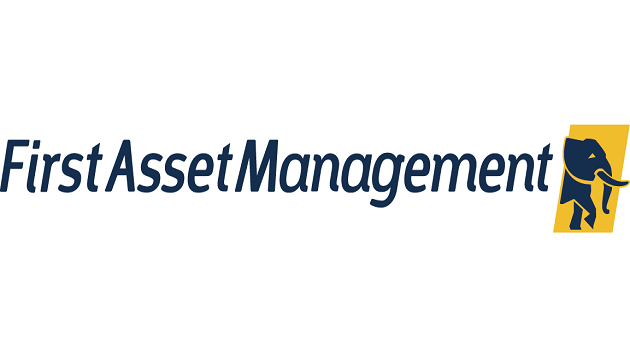E-Financial
NAICOM Urges Insurance Firms to Maintain Sanctity of Policy Contracts During Restrictions

The National Insurance Commission, NAICOM, has directed insurance firms in the country to maintain sanctity of insurance contracts entered into with clients.
In a circular titled RE: EFFECT OF COVID-19 ON INSURANCE OPERATIONS: referenced NAICOM/DPR/CIR/27/2020 and NAICOM/DPR/CIR/28/2020 dated 24 and 27 March 2020 respectively, the regulator granted firms some measure of leeway as part of business continuity measures and to, as much as possible, ensure availability of insurance services and protections of insurance policy holders during the COVID-19 movement restriction.
The NAICOM in the circular granted that Where Approval-In-Principle for the preceding insurance period had been granted, all renewals or extensions of the foreign reinsurance proportions that become due during COVID-19 movement restriction are permitted for renewal on existing basis.
It also said that where Approval-In-Principle for the foreign proportion of a new insurance placement is required during the COVID-19 movement restriction, it shall be treated on the basis of “Use and File” subject to prior exhaustion of in-country capacity, adding that for the avoidance of doubt, after utilizing available local capacity, the lead insurer is permitted to reinsure the excess of the risk offshore and submit relevant documentations to the Commission thereafter.
Also granted is that all Post Placement Reports, Reinsurance Treaties and other related special risk foreign reinsurance documentations due for submission during the pendency of theCOVID-19 restrictions are to be submitted when movement restrictions are lifted.
The regulator in the document signed by Pius T. Agboola, Director, Policy and Regulation, also noted that all insurance/reinsurance placements shall be done in accordance with other relevant extant insurance laws, regulations and guidelines while all submissions to the Commission including hard-copies sequel to the above forbearance shall be donenot later seven (7) days from the end of COVID-19 Movement Restrictions.
It advised firms to be diligent, circumspect and supportive of Government in its efforts to tame the COVID-19 Pandemic.
E-Financial
NIBSS, Others Flag 13,417 Nigerian Fraudsters on Person of Interest Portal

At least 13,417 individuals linked to fraudulent activities in Nigeria’s financial system have been captured on the Person of Interest Portal jointly developed by the Nigeria Inter Bank Settlement System (NIBSS) in collaboration with the Central Bank of Nigeria (CBN), security agencies and other stakeholders.

Premier Oiwoh, managing director of NIBSS, disclosed this while speaking on ongoing efforts to curb fraud in the payments ecosystem, noting that the portal which contains names and photographs of suspects has been actively used by law enforcement agencies since it began capturing data from 2019.
Oiwoh, while noting that fraud management remains a core responsibility of NIBSS, noted that the number of reported fraud cases has declined over the past five years, the value of losses remains a key concern for regulators and operators.
According to him, actual fraud losses stood at about N17.67 billion in 2023 before rising sharply to N52.26 billion in 2024, mainly due to a single incident involving N31.1 billion by one entity. He noted, however, that losses dropped significantly in 2025, reflecting tighter controls and improved collaboration across the industry.
He explained that Lagos continues to account for the highest concentration of fraud cases due to its position as the country’s commercial hub, while Abuja has also recorded a notable rise, with other states still featuring in reported incidents.
By transaction channel, Oiwoh said fraud is most prevalent in e-commerce and internet banking, followed by POS, mobile and web platforms.
He identified social engineering as the most common technique used by fraudsters, warning that insider abuse now poses the greatest threat to the system.
“Insider involvement is high, and recent investigations have confirmed this. Many of the fraud cases we are seeing today involve insiders, including former bankers,” he stated, noting that coordinated industry action has yielded results, and that joint efforts last year alone prevented losses of about N20 billion that could have been lost to fraud.
He raised concern over non-reporting of fraud incidents revealing that fraud reporting declined by about 34 per cent in the last quarter of 2025.
He warned that failure to report allows perpetrators to move freely between institutions undetected.
“In several cases investigated last year, individuals involved in fraud simply moved to other institutions because incidents were not reported. Non-reporting is unacceptable,” he said.
He said NIBSS, working with the CBN, the Nigerian Financial Intelligence Unit, and security agencies, has integrated centralised data systems, including industry watch lists, politically exposed persons databases, and customer account repositories, into the Person of Interest Portal to strengthen monitoring, identity management, and fraud prevention.
Credit… Leadership
E-Financial
CBN Prepares Fresh Debit Card Rules to Improve ATM Services

Central Bank of Nigeria (CBN) is to introduce new rules to improve how debit cards and Automated Teller Machines (ATMs) work in Nigeria, according to Olayemi Cardoso, governor of the apex bank.

Cardoso, made this known through Fatai Karim, his special adviser, at an event held over the weekend.
According to him, the new rules are meant to solve ongoing problems with cash withdrawals and to restore public trust in electronic payment systems.
The CBN explained that banks will now be required to issue debit cards based on the number of ATMs they have installed. This means a bank should not issue too many cards if it does not have enough ATMs to support them.
The policy is expected to reduce long queues at ATMs, frequent machine breakdowns, and uneven access to cash across the country.
The CBN noted that repeated ATM failures and cash shortages have made many Nigerians lose confidence in digital banking, even though electronic transactions are increasing.
The Governor said the new policy will soon be introduced to clean up the system and ensure banks properly balance the number of debit cards they issue with the ATMs they operate.
E-Financial
First Asset Management Receives Upgraded Ratings from Agusto &Co and DataPro

First Asset Management, a subsidiary of FirstHoldCo Plc has recorded a significant milestone as its rating was upgraded to ‘AA’ from ‘AA-’ by DataPro, reflecting the firm’s strong fundamentals and sustained resilience in Nigeria’s Asset management landscape.

The rating upgrade, issued in DataPro’s latest rating report, underscores First Asset Management’s diversified income base, high-quality investment portfolio, and experienced team, all of which continue to support the firm’s long-term stability, sound governance framework, and consistent performance.
The improved rating highlights the organisation’s ability to maintain strong operational fundamentals while effectively navigating market cycles. It further reflects First Asset Management’s disciplined investment philosophy, prudent risk management practices, and commitment to delivering value-driven solutions to its clients.
Speaking on the upgrade, Ike Onyia, Managing Director/CEO of First Asset Management, stated, “We are pleased with DataPro’s decision to upgrade our rating to ‘AA’. This recognition affirms the depth of our investment expertise, and the consistency of our governance and risk management processes. We remain focused on sustaining strong performance while delivering reliable investment outcomes for our clients.”
In a related development, Agusto & Co. has upgraded the rating of the First Asset Money Market Fund to ‘Aa-(f)’ from ‘A+(f)’, further reinforcing the strength of First Asset Management’s product offering.
According to Agusto & Co., the upgraded rating reflects the fund’s consistent low exposure to interest rates and liquidity risks, as well as the fund manager’s commendable professionalism and prudent investment approach. The rating affirms First Asset Money Market Fund’s position as a formidable investment vehicle for capital preservation and steady income generation.
First Asset Management continues to maintain a strong position within Nigeria’s asset management industry, supported by its disciplined investment framework, experienced investment professionals, and a growing suite of products designed to meet the evolving needs of retail and institutional investors.
DataPro and Agusto & Co. are both recognized leaders in ratings and investment research in Nigeria, with extensive experience providing independent assessments across multiple sectors. Their ratings are widely accepted as benchmarks for evaluating financial strength, risk management, and business sustainability.
First Asset Management is a leading Nigerian investment manager within the FirstHoldCo Group. The firm has evolved into a full service investment platform, offering integrated wealth and portfolio solutions across the Group.
First Asset Management manages diversified strategies spanning fixed income, equities, alternatives, passive and quantitative products, in multiple currencies for a variety of individual, intermediary and institutional clients.

 General News3 days ago
General News3 days agoPalmPay User Shares Experience on Fintech Apps to Trust in Nigeria

 News3 days ago
News3 days agoStakeholders Demand Stronger Governance and Infrastructure to Drive Tech Adoption @ Lagos AI Summit

 General News3 days ago
General News3 days agoNigerians Target Self-Improvement, Business Startups in 2026 Google Data

 News3 days ago
News3 days ago35 Million Nigerians Face Acute Hunger in 2026, UN Warns

 General News3 days ago
General News3 days agoHow Inside Jobs and Policy Shocks Trigger Nigeria’s Rising Loan Crisis

 News24 hours ago
News24 hours agoAnambra Cuts Monday Pay to Kill Sit-at-Home

 E-Financial24 hours ago
E-Financial24 hours agoFirst Asset Management Receives Upgraded Ratings from Agusto &Co and DataPro

 General News24 hours ago
General News24 hours agoNigeria Treats Religious Violence as Attack on State – NSA Ribadu























